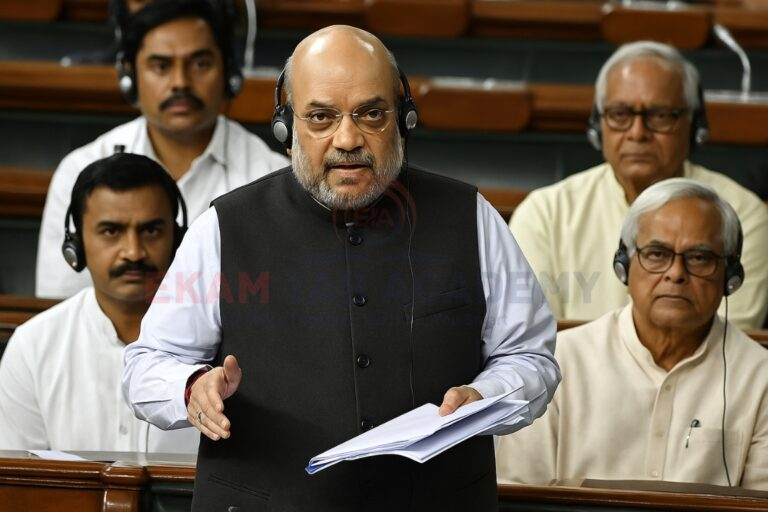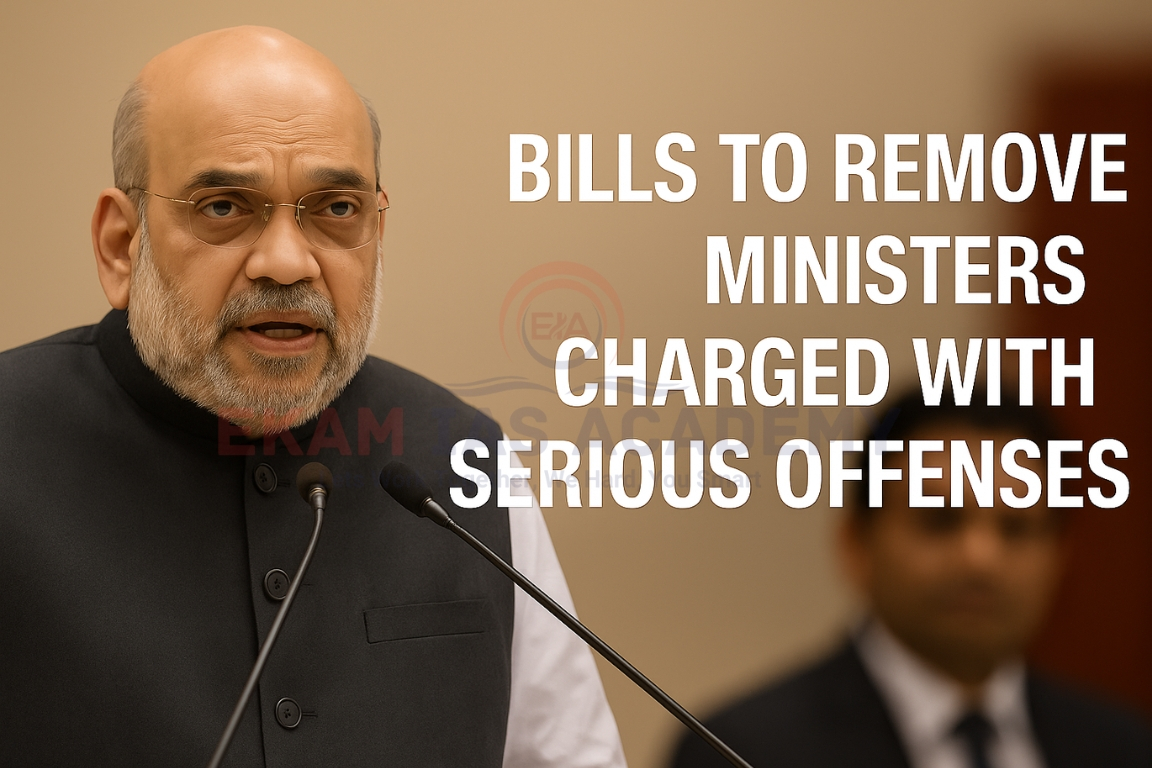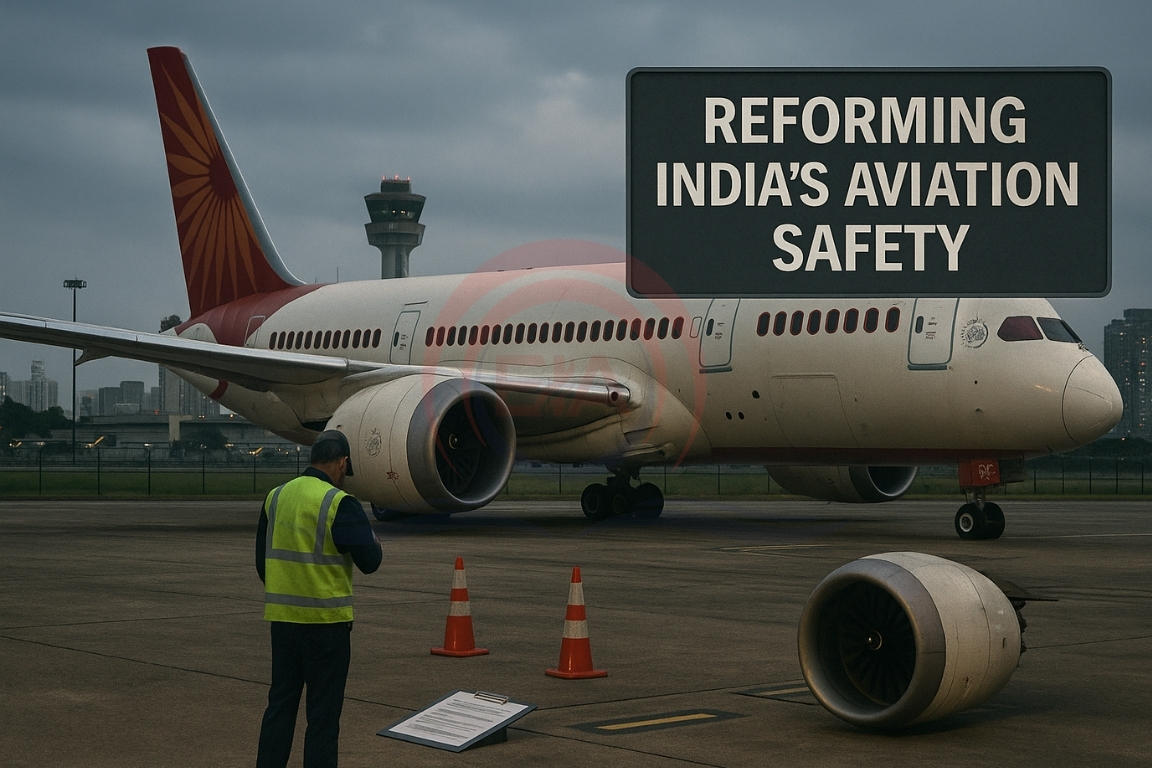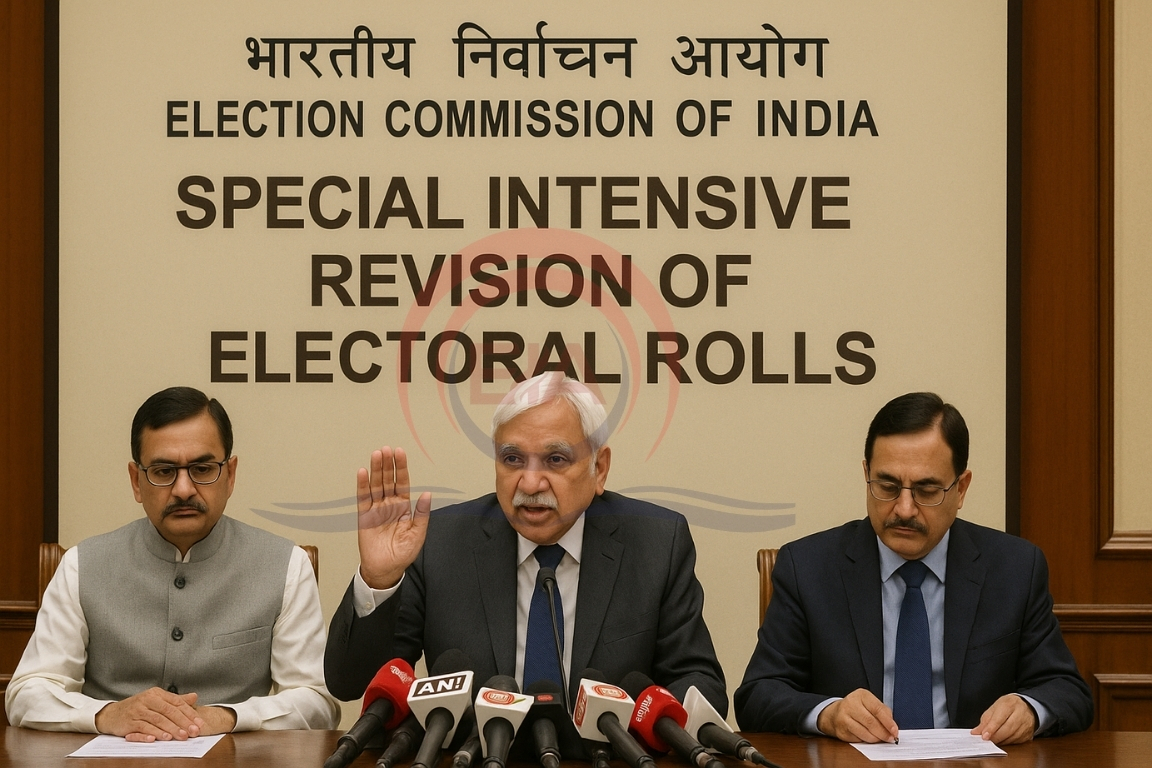The Union Home Minister Amit Shah is set to introduce three Bills in Lok Sabha that seek a legal framework to remove the Prime Minister, Chief Ministers, and Ministers who are in custody for serious criminal offences.
Key Highlights of the Proposal
Automatic Removal After Custody
- If the PM, CM, or any Minister is arrested and kept in custody for 30 consecutive days on charges punishable with imprisonment of five years or more, they shall be removed from office on the 31st day.
- Removal authority:
- President → for PM and Union Ministers.
- Governor → for Chief Ministers of States.
- Chief Minister → for State Ministers.
- Lt. Governor → for Chief Minister of Union Territories.
- Reappointment Possible: Once released from custody, the individual may be reappointed to the same position.
CONSTITUTIONAL BASIS
- The Constitution (130th Amendment) Bill, 2025 seeks changes in:
- Article 75: Removal of Union Ministers including PM.
- Article 164: Removal of State Ministers and CMs.
- Article 239AA: Provisions for Delhi’s CM and Ministers.
- Aim: To ensure constitutional morality, good governance, and maintain public trust in elected representatives.
Other Bills
- Jammu and Kashmir Reorganisation (Amendment) Bill, 2025: Specifies process for removal of CM and Ministers in J&K.
- Government of Union Territories (Amendment) Bill, 2025: Defines procedure for removal of CM and Ministers in Union Territories, including Puducherry.

Significance
- Addresses a gap: Currently, there is no explicit provision in the Constitution for automatic removal of Ministers in custody on serious charges.
- Strengthens accountability: Prevents misuse of power by leaders facing criminal proceedings.
- Upholds public faith: Ensures that governance is not compromised by individuals under trial for grave offences.
Criticism & Concerns
- Possibility of misuse: Political opponents may exploit false cases to target leaders.
- Reappointment clause: Raises questions on the effectiveness of removal if leaders can return immediately after release.
REPRESENTATION OF THE PEOPLE ACT, 1951
Section 8 (Disqualification on Conviction for Certain Offences)
- If a person is convicted and sentenced to imprisonment of 2 years or more, they are disqualified from contesting elections.
- The disqualification starts immediately from the date of conviction (as per SC judgment in Lily Thomas vs Union of India, 2013).
- Duration: Disqualification continues during imprisonment + 6 years after release.
Other Provisions of Disqualification (Simple Points)
Article 102 / 191 – Disqualification also for:
- Holding an office of profit.
- Being of unsound mind.
- Being an undischarged insolvent.
- Not being a citizen of India or voluntarily acquiring foreign citizenship.
RPA, 1951 (other cases of disqualification):
- Conviction for corrupt practices (e.g., bribery in elections).
- Conviction for offences like promoting enmity, hoarding, or smuggling.
If sentenced to 2 years+ imprisonment → immediate disqualification under Section 8 of RPA, 1951, backed by Articles 102 & 191 of Constitution.
Conclusion
The Bills aim to set a clear accountability mechanism for Ministers facing serious criminal charges, reinforcing the principle that those in power must remain beyond suspicion. However, careful safeguards are needed to prevent political misuse while ensuring genuine accountability.





